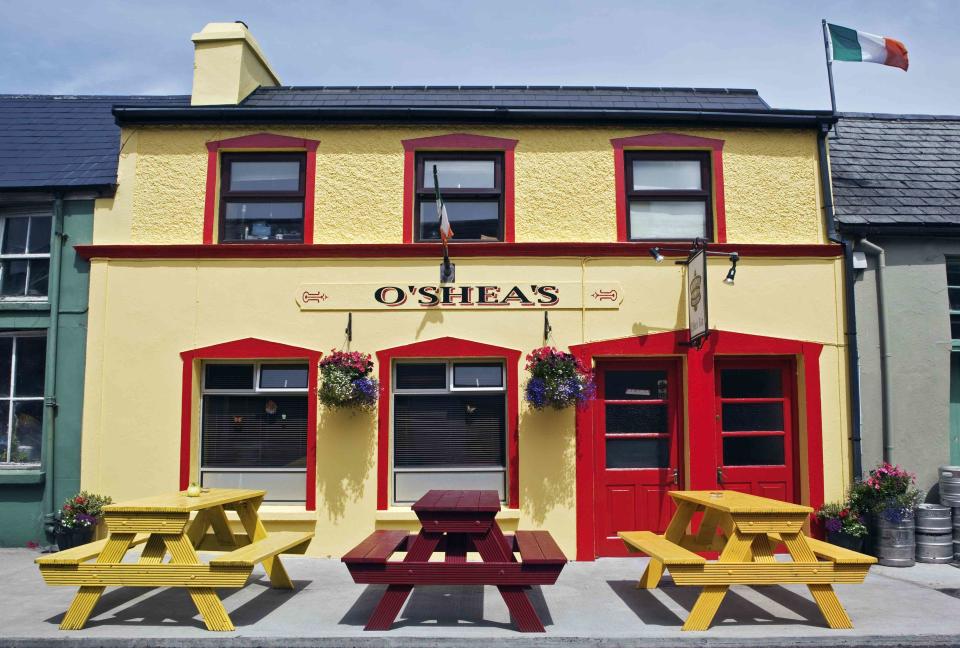Here’s the Legal Reason Why Irish Bars Are Always Named After People
More than 150 years ago, U.K. legislators enacted a law that laid the foundation for what would inadvertently become a staple of Irish pub names.

John W Banagan / Getty Images
From Midtown Manhattan to a Mount Everest base camp in Nepal, you can find an Irish bar serving up Guinness.
But while the locations vary greatly, one thing stays consistent — if you walk into one of these establishments it’s likely going to be named Murphy’s, Kelly’s, O'Malley’s, or some other Irish surname. And that’s not an accident or coincidence. Rather it’s due in part to the U.K.’s Licensing Act 1872, which came about while Ireland was under England’s rule, in an effort to regulate Irish pubs.
This certainly wasn’t the first attempt to manage Ireland’s bars. But it’s important to understand a bit more about the country’s long history with pubs.
Related: The Future of Irish Food Is Hiding in Rural Pubs
To take things back, Ireland is home to Sean’s Bar in Athlone, which was established in 900 A.D., making it one of the oldest bars in the world, according to Have Ye No Homes To Go To?: The History of the Irish Pub by Kevin Martin. But even before Sean’s Bar opened, kings in the sixth and seventh centuries operated under Brehon Law, under which they were expected to have a local brewer who always had beer and food available (for free) to their subjects. Naturally, these establishments became popular social spots for people to stop in, chat, and have a drink — like Irish pubs today.
Over time, drinking spots that weren’t sponsored by the monarchy started popping up. Then came the attempts to regulate them.
In 1613, legislation was passed that stated you needed to have a license to operate a tavern. However, it wasn’t well enforced. Similar acts were legislated in 1635 and 1685, each with similarly fruitless results. Later in 1753 and 1833, there were other efforts to thwart illegal drinking establishments by cracking down on home distilling.
But the law that seemed to stick the most was The Licensing Act 1872. This legislation outlawed public drunkenness, mandated pub opening and closing times, and, perhaps most notably, made it so “all pubs were required to display the owner’s name above the door,” says Elizabeth Stack, executive director of the American Irish Historical Society in New York City, in The Washington Post.
“The legacy of this law is often cited as one of the unique features of the Irish Pub,” writes Martin.
Related: You Can Dine in a Former Orient Express Train Car in Coastal Ireland
The idea behind the legislation was to increase accountability for pub owners — in other words, if a law was broken the police would know exactly who to contact. It also made things much easier for tax collectors seeking their dues.
Of course, many things have changed over the past 150 years. Rules and regulations have since relaxed so that Irish bar owners no longer have to legally put their names on their pubs. Yet the tradition seems to have stuck.
“To this day, more than a quarter of Ireland’s pubs include a first or last name,” writes Carson TerBush for The Washington Post. And in the U.S., over 50% of American Irish pubs have a surname.
So, while early legislators weren’t attempting to do branding for these establishments, they certainly laid the groundwork for what would become one of the many Irish pub traditions.
For more Food & Wine news, make sure to sign up for our newsletter!
Read the original article on Food & Wine.

